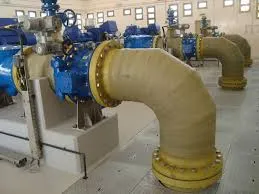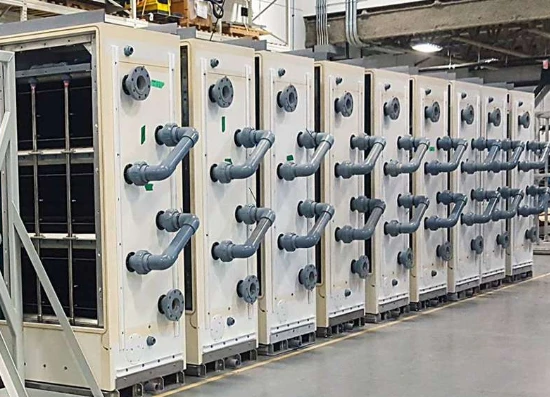
-
 Afrikaans
Afrikaans -
 Albanian
Albanian -
 Amharic
Amharic -
 Arabic
Arabic -
 Armenian
Armenian -
 Azerbaijani
Azerbaijani -
 Basque
Basque -
 Belarusian
Belarusian -
 Bengali
Bengali -
 Bosnian
Bosnian -
 Bulgarian
Bulgarian -
 Catalan
Catalan -
 Cebuano
Cebuano -
 China
China -
 China (Taiwan)
China (Taiwan) -
 Corsican
Corsican -
 Croatian
Croatian -
 Czech
Czech -
 Danish
Danish -
 Dutch
Dutch -
 English
English -
 Esperanto
Esperanto -
 Estonian
Estonian -
 Finnish
Finnish -
 French
French -
 Frisian
Frisian -
 Galician
Galician -
 Georgian
Georgian -
 German
German -
 Greek
Greek -
 Gujarati
Gujarati -
 Haitian Creole
Haitian Creole -
 hausa
hausa -
 hawaiian
hawaiian -
 Hebrew
Hebrew -
 Hindi
Hindi -
 Miao
Miao -
 Hungarian
Hungarian -
 Icelandic
Icelandic -
 igbo
igbo -
 Indonesian
Indonesian -
 irish
irish -
 Italian
Italian -
 Japanese
Japanese -
 Javanese
Javanese -
 Kannada
Kannada -
 kazakh
kazakh -
 Khmer
Khmer -
 Rwandese
Rwandese -
 Korean
Korean -
 Kurdish
Kurdish -
 Kyrgyz
Kyrgyz -
 Lao
Lao -
 Latin
Latin -
 Latvian
Latvian -
 Lithuanian
Lithuanian -
 Luxembourgish
Luxembourgish -
 Macedonian
Macedonian -
 Malgashi
Malgashi -
 Malay
Malay -
 Malayalam
Malayalam -
 Maltese
Maltese -
 Maori
Maori -
 Marathi
Marathi -
 Mongolian
Mongolian -
 Myanmar
Myanmar -
 Nepali
Nepali -
 Norwegian
Norwegian -
 Norwegian
Norwegian -
 Occitan
Occitan -
 Pashto
Pashto -
 Persian
Persian -
 Polish
Polish -
 Portuguese
Portuguese -
 Punjabi
Punjabi -
 Romanian
Romanian -
 Russian
Russian -
 Samoan
Samoan -
 Scottish Gaelic
Scottish Gaelic -
 Serbian
Serbian -
 Sesotho
Sesotho -
 Shona
Shona -
 Sindhi
Sindhi -
 Sinhala
Sinhala -
 Slovak
Slovak -
 Slovenian
Slovenian -
 Somali
Somali -
 Spanish
Spanish -
 Sundanese
Sundanese -
 Swahili
Swahili -
 Swedish
Swedish -
 Tagalog
Tagalog -
 Tajik
Tajik -
 Tamil
Tamil -
 Tatar
Tatar -
 Telugu
Telugu -
 Thai
Thai -
 Turkish
Turkish -
 Turkmen
Turkmen -
 Ukrainian
Ukrainian -
 Urdu
Urdu -
 Uighur
Uighur -
 Uzbek
Uzbek -
 Vietnamese
Vietnamese -
 Welsh
Welsh -
 Bantu
Bantu -
 Yiddish
Yiddish -
 Yoruba
Yoruba -
 Zulu
Zulu
Jan . 28, 2025 05:48
Back to list
Scrubbers
In the realm of industrial storage solutions, the demand for innovative materials that offer durability, efficiency, and safety has never been higher. Among these solutions, Fiberglass Reinforced Plastic (FRP) insulation tanks have emerged as critical components for various industries. These tanks leverage cutting-edge technology, providing an unparalleled combination of strength, adaptability, and resilience that addresses multiple industrial challenges.
The environmental impact of industrial operations is a growing concern, and FRP tanks contribute positively in this regard. Production processes for FRP are inherently less energy-intensive compared to traditional materials, aligning with sustainability goals. Moreover, the extended lifecycle of FRP tanks means fewer replacements over time, thereby reducing the industry's carbon footprint. As sustainability becomes an integral part of corporate responsibility, the choice of FRP insulation tanks signals a commitment to eco-friendly practices. However, the successful implementation of FRP tanks requires expertise and an understanding of their specific applications. Companies must engage with seasoned professionals who have extensive experience in the design, installation, and maintenance of these systems. Authoritative expertise not only ensures optimal configuration for specific industrial requirements but also maximizes the economic and operational benefits. Trustworthiness in the supplier relationship becomes paramount, with certifications and compliance with industry standards serving as critical benchmarks for reliability and safety. Many companies that have transitioned to FRP insulation tanks report positive outcomes, showcasing real-world experience that underscores the material's advantages. For instance, a chemical manufacturing plant that previously struggled with metal tank corrosion found substantial improvement in both operational efficiency and safety measures post-transition. Such testimonials serve as valuable case studies for potential adopters, illustrating the transformative impact of FRP tanks on industrial processes. In conclusion, FRP insulation tanks stand out as a leading solution in the industrial sector, combining experience-proven reliability with cutting-edge technological advancements. Their versatile properties, from corrosion resistance and thermal insulation to structural adaptability, present a robust case for their adoption across various industries. As companies continue to prioritize sustainability and cost-effectiveness, FRP insulation tanks offer a path toward achieving these critical objectives in an increasingly competitive global market.


The environmental impact of industrial operations is a growing concern, and FRP tanks contribute positively in this regard. Production processes for FRP are inherently less energy-intensive compared to traditional materials, aligning with sustainability goals. Moreover, the extended lifecycle of FRP tanks means fewer replacements over time, thereby reducing the industry's carbon footprint. As sustainability becomes an integral part of corporate responsibility, the choice of FRP insulation tanks signals a commitment to eco-friendly practices. However, the successful implementation of FRP tanks requires expertise and an understanding of their specific applications. Companies must engage with seasoned professionals who have extensive experience in the design, installation, and maintenance of these systems. Authoritative expertise not only ensures optimal configuration for specific industrial requirements but also maximizes the economic and operational benefits. Trustworthiness in the supplier relationship becomes paramount, with certifications and compliance with industry standards serving as critical benchmarks for reliability and safety. Many companies that have transitioned to FRP insulation tanks report positive outcomes, showcasing real-world experience that underscores the material's advantages. For instance, a chemical manufacturing plant that previously struggled with metal tank corrosion found substantial improvement in both operational efficiency and safety measures post-transition. Such testimonials serve as valuable case studies for potential adopters, illustrating the transformative impact of FRP tanks on industrial processes. In conclusion, FRP insulation tanks stand out as a leading solution in the industrial sector, combining experience-proven reliability with cutting-edge technological advancements. Their versatile properties, from corrosion resistance and thermal insulation to structural adaptability, present a robust case for their adoption across various industries. As companies continue to prioritize sustainability and cost-effectiveness, FRP insulation tanks offer a path toward achieving these critical objectives in an increasingly competitive global market.
Next:
Related Products









